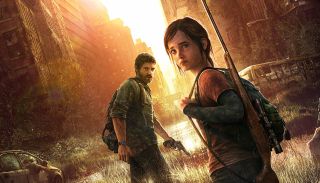Succession writer says she's considering a return to games because they're 'genuinely, massively exciting in a way that other forms aren't'
But the $161 billion the industry turned over in 2020 helps too.

There should be a Succession game. I mean, I guess there is, it's called Crusader Kings 3, and it also revolves around failson cabals plotting to usurp their parent's throne, but there should be an actual Succession game. That's my main takeaway from a recent interview with TV writer Lucy Prebble, who has writing credits on everything from Succession, to I Hate Suzie, to Destiny 1. All pretty much the same thing.
In a chat with the BBC's Hardtalk, amid various questions about Prebble's work in TV and theatre, the writer was asked—by slightly bemused host Stephen Sackur—about her long standing passion for video games. Prebble was right in there, telling Sackur that she grew up playing games and that, for all her recent work on stage and screen, games "are doing things that are genuinely, massively exciting in a way that other forms just aren't. They aren't moving".
Prebble went on to say that, while plenty of games were a little staid and predictable in terms of their plots, that was hardly an issue unique to games writing in particular. "I don't think [predictability is] completely confined to gaming," said Prebble, noting that if you play "the very independent, maybe even what you'd call 'artier' games that are available", you're likely to encounter less predictable, more interesting, and more boldly experimental styles of storytelling.
"Don't get me wrong," said Prebble, "the big, what they call AAA games, the ones that you kind of think of, do have a kind of slightly banal insistence on a particular kind of violence and a particular kind of obstacle-overcoming." But then, "you would say that about Hollywood as well."
Sounds about right to me. Maybe the true sign of games' maturity as a medium is that they've become a bit boring in their biggest, most expensive, most populist forms, just like films. Sure, there are big, brilliant swings—Baldur's Gate 3 only came out a few weeks ago, of course—but I do feel like I know pretty much what I'm gonna get from most big tentpole releases with 10-figure budgets behind them.
That's why Prebble spends most of her time talking about what's going on in the indie scene, although she admits she very much liked The Last of Us (the show, and presumably the game too). In fact, she says she's been thinking about returning to work on games, "mostly, honestly, because it's so formally interesting" to her. Then again—as Sackur points out—it doesn't hurt that the games industry turned over $160 billion in 2020 versus the film industry's $41 billion.
"If they pay well, that is not the case for some other areas of our industry, and of course that features" in writers' decision-making, said Prebble. But mostly, gaming "doesn't feel to me like it's reached anywhere near the limits of its creative ability and capacity, 'cause it's such a young art form compared to television or screen… that is honestly why I'm so fascinated by it."
The biggest gaming news, reviews and hardware deals
Keep up to date with the most important stories and the best deals, as picked by the PC Gamer team.

One of Josh's first memories is of playing Quake 2 on the family computer when he was much too young to be doing that, and he's been irreparably game-brained ever since. His writing has been featured in Vice, Fanbyte, and the Financial Times. He'll play pretty much anything, and has written far too much on everything from visual novels to Assassin's Creed. His most profound loves are for CRPGs, immersive sims, and any game whose ambition outstrips its budget. He thinks you're all far too mean about Deus Ex: Invisible War.
Most Popular





